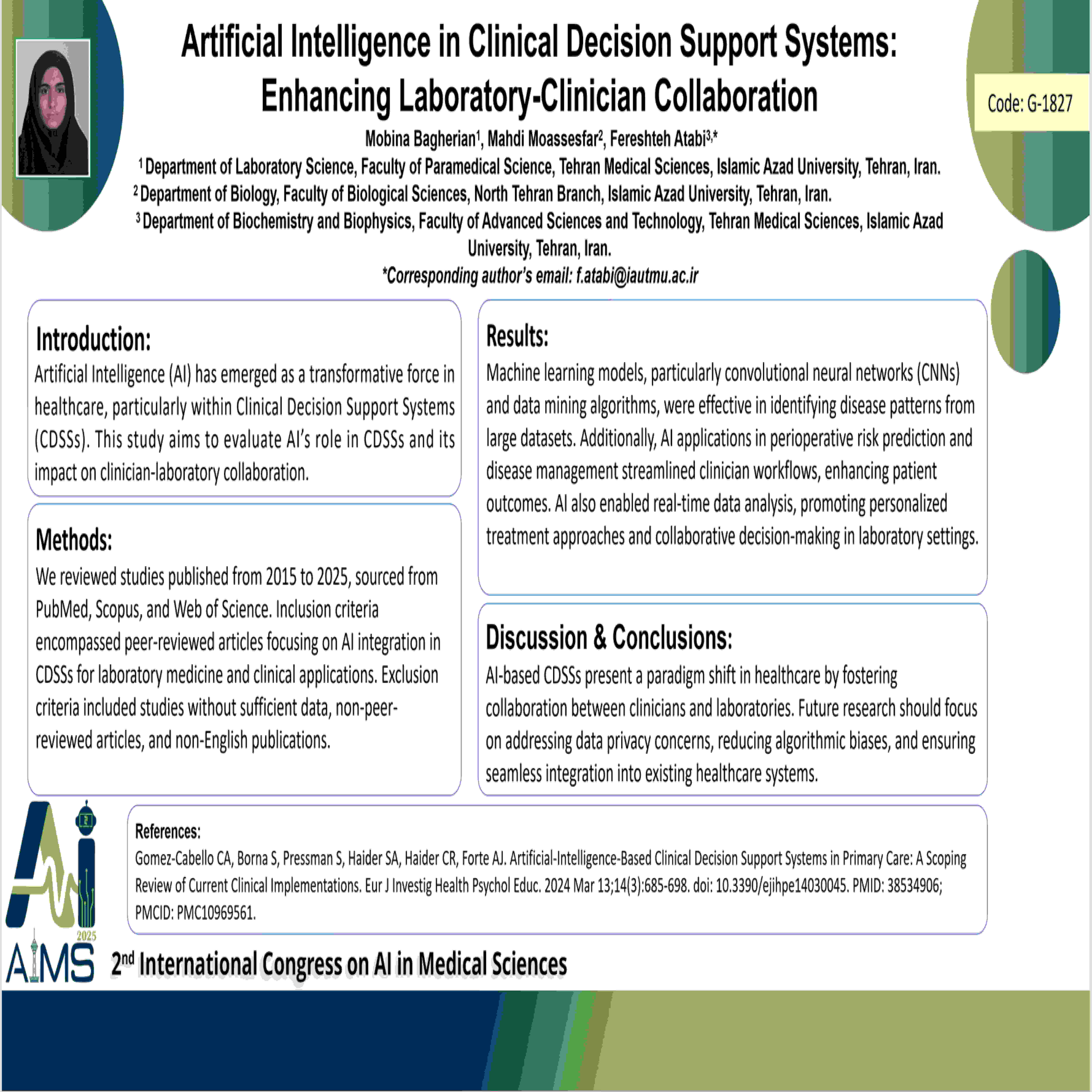Artificial Intelligence in Clinical Decision Support Systems: Enhancing Laboratory- Clinician Collaboration
Code: G-1827
Authors: Mobina Bagherian ℗, Mahdi Moassesfar , Fereshteh Atabi *
Schedule: Not Scheduled!
Tag: Biomedical Signal Processing
Download: Download Poster
Abstract:
Abstract
Background: Artificial Intelligence (AI) has emerged as a transformative force in healthcare, particularly within Clinical Decision Support Systems (CDSSs). By integrating AI into clinical and laboratory settings, healthcare providers can leverage data-driven insights to enhance diagnostic accuracy, optimize treatment selection, and reduce medical errors. This study aims to evaluates the role of AI in CDSSs and its impact on clinician-laboratory collaboration. Methods: We reviewed studies published from 2015 to 2025, sourced from PubMed, Scopus, and Web of Science. Inclusion criteria encompassed peer-reviewed articles focusing on AI integration in CDSSs for laboratory medicine and clinical applications. Exclusion criteria included studies without sufficient data, non-peer-reviewed articles, and non-English publications. Results: AI-driven CDSSs demonstrated significant improvements in diagnostic accuracy and decision-making efficiency. Machine learning models, particularly convolutional neural networks (CNNs) and data mining algorithms, were effective in identifying disease patterns from large datasets. These systems reduced false alerts and missed diagnoses compared to traditional rule-based models. Additionally, AI applications in perioperative risk prediction and disease management streamlined clinician workflows, enhancing patient outcomes. AI also enabled real- time data analysis, promoting personalized treatment approaches and collaborative decision- making in laboratory settings. Conclusion: AI-based CDSSs present a paradigm shift in healthcare by fostering collaboration between clinicians and laboratories. Their capacity to process vast datasets, generate evidence- based recommendations, and improve diagnostic accuracy highlights their transformative potential. Future research should focus on addressing data privacy concerns, reducing algorithmic biases, and ensuring seamless integration into existing healthcare systems.
Keywords
Artificial Intelligence ,Machine Learning, Diagnosis
